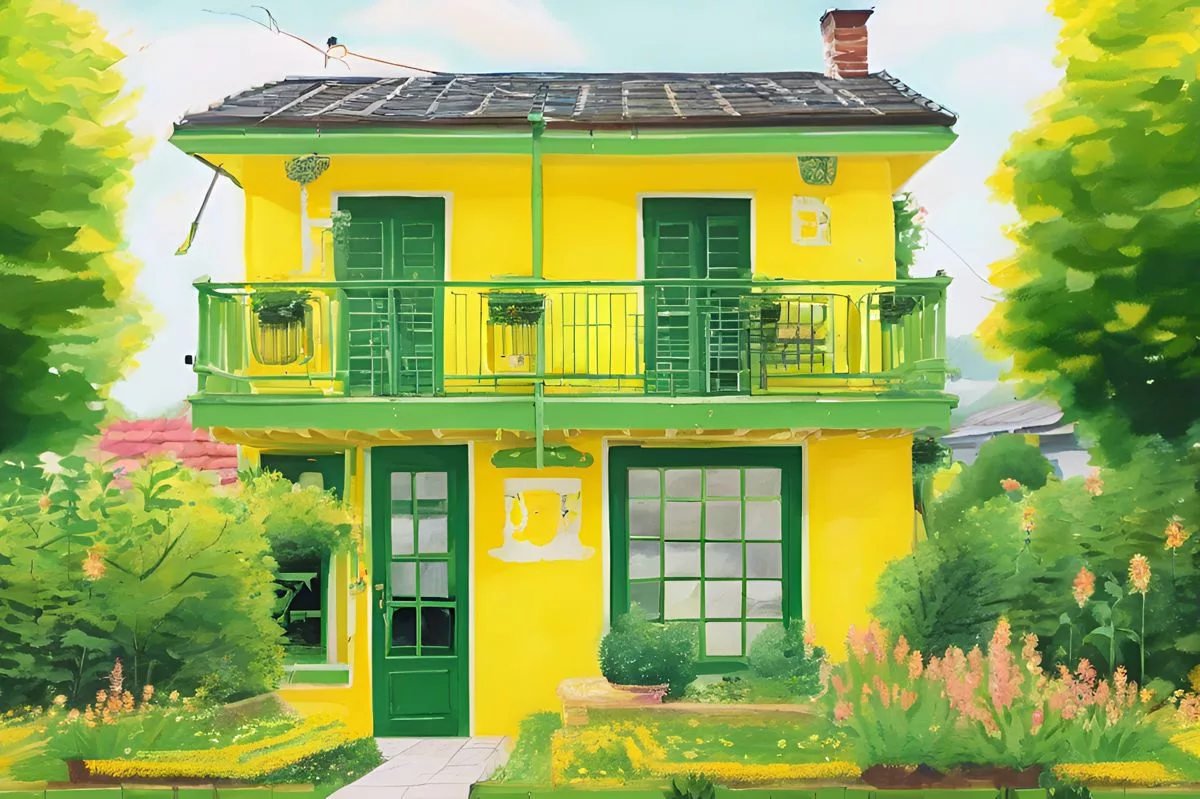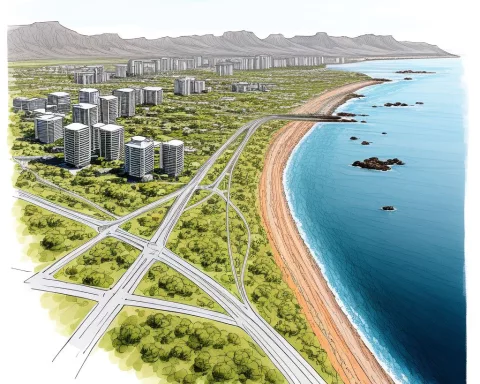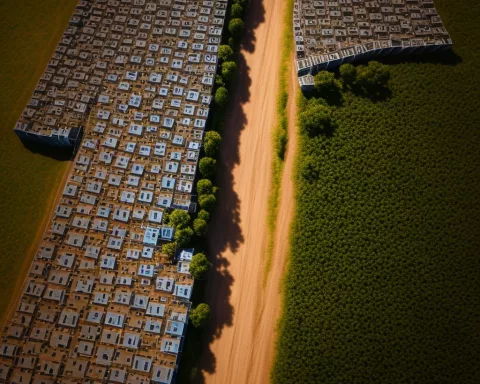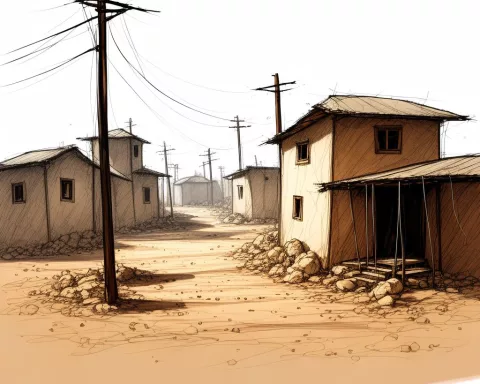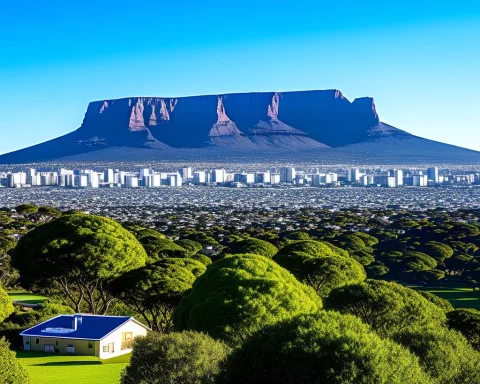The South African government is committed to providing housing for its citizens and has allocated a substantial part of its budget to upgrading informal settlements and providing access to basic amenities. Despite fiscal issues and budget reductions, the government is focusing on social and affordable housing and launched initiatives to empower vulnerable groups and small businesses. The government is also aiming to create spatially integrated human settlements, improve disaster and emergency housing, and expedite the issuance of title deeds to deserving beneficiaries.
The government of South Africa remains committed to providing housing for its citizens despite fiscal issues and budget reductions. The Department of Human Settlements has allocated a substantial part of its budget to the Informal Settlement Upgrading Partnership Grant and the Urban Settlements Development Grant to improve living conditions and provide access to basic amenities. The department is also focusing on upgrading informal settlements, eliminating mud houses, and creating spatially integrated human settlements. The government is emphasizing social and affordable housing and has launched initiatives to empower vulnerable groups and small businesses.
As the new dawn illuminates the world, global communities unite to celebrate Tata Madiba’s everlasting legacy. The resonating vibration emanates from the parliamentary halls in Cape Town, a cry imbued with Ubuntu spirit, projecting a vision of ‘residential security and solace for all.’ This ambitious endeavor, championed by the esteemed Minister of Human Settlements, Mmamoloko Kubayi, is gradually materializing through structured progress, sustainable city planning, and policies promoting inclusivity.
South Africa, a dynamic mosaic of cultures, histories, and experiences, has recently triumphed over another significant event, the 2024 National and Provincial elections. The results have reconfirmed the mandate granted to the elected officials; to serve their constituents and align their objectives with the evolving political sphere. As we mark the conclusion of the Medium-Term Strategic Framework 2019-2024 and the initiation of the seventh administration’s five-year tenure, we should reflect on the progress made in the human settlements sector.
The Path to Inclusive Urban Progress
Looking back, the previous three decades have forged a route towards extraordinary transformation. Despite the ongoing severe housing challenges, the government remains resolute in providing homes for its citizens, armed with knowledge gained over the years, lessons from past experiences, and a determination to address housing deficiencies directly.
Confronting socio-political evolution, technological progression, and climate change impacts, the government acknowledges the requirement to adapt its human settlement strategies. This includes reorganizing and readjusting the delivery mechanism to be more innovative and flexible. Prioritizing the digitization of the beneficiary list system to enhance departmental processes is a key focus.
To stay in step with rapid changes, the government has begun reviewing the White Paper policy to revise the Housing Act and Housing Code. The goal is to cultivate an environment that facilitates the development of sustainable, spatially integrated, and climate-resilient settlements.
Overcoming Financial Hurdles
Despite fiscal issues and budget reductions totaling R14 billion over the next three years, the government’s commitment to fulfill its mandate remains unwavering. For the fiscal year 2024/25, a total of R33.1 billion has been allocated to the Department of Human Settlements and its affiliations. A substantial part of this budget is designated to the Informal Settlement Upgrading Partnership Grant and the Urban Settlements Development Grant.
The Department continues to advocate for providing houses to communities, thereby upgrading their living conditions. The yearly target includes building 20,925 top structures and 35,335 service sites to promote self-construction and ease access to basic amenities.
Enhancing Informal Settlements
The Department’s primary objectives include improving informal settlements, eliminating mud houses, and augmenting the delivery of affordable housing. In fact, the Informal Settlements Upgrading program has been launched to better the living conditions of residents in unsuitable surroundings. This program focuses on upgrading these settlements and, if required, relocating those situated in disaster-prone areas.
The Department has also committed to addressing disaster and emergency housing. South Africa has recently seen a surge in natural disasters, particularly in coastal regions such as Kwazulu-Natal, Eastern Cape, and Western Cape. To lessen these disasters’ effects, the government is adopting a more proactive approach, including relocating high-risk settlements and enhancing inter-governmental relations.
Dismantling the Apartheid Spatial Development Legacy
In an endeavor to create spatially integrated human settlements, the government is turning towards public/private alliances. Employing these collaborations, the government aims to fulfill their housing mandate despite the budget limitations.
In addition to government efforts, the Department of Public Works and Infrastructure has assigned 14,000 hectares of state land for human settlements. To date, 2,689 hectares have been transferred to the Housing Development Agency (HDA), with an extra 10,350 hectares allocated for human settlements planning.
Also, the government is emphasizing on social and affordable housing. Numerous projects were launched in the last fiscal year, delivering thousands of units nationwide. The National Housing Finance Corporation (NHFC) has initiated a developer incubation program to assist budding developers in overcoming capacity issues.
Guaranteeing Tenure Security
The government acknowledges the magnitude of security of tenure challenges. To expedite the issuance of title deeds to deserving beneficiaries, a campaign named “Title Deeds Friday” was launched in November 2023. This initiative will persist into the current fiscal year, focusing on overcoming existing township establishment issues and infrastructure blockages.
As the government strives to transform the property and real sector, several initiatives are being launched to empower vulnerable groups and small businesses. These include the National Small Micro and Medium Enterprise (SMME) Development Program and the Property Practitioners Regulatory Authority (PPRA)’s collaboration with the Rawson Franchise Group.
A Dream Materializing
Today, as the Department of Human Settlements presents Budget Vote No. 33 for the fiscal year 2022/23, it embodies the aspirations of every South African dreaming of a better life. This vision, deeply entrenched in the spirit of Ubuntu, is gradually coming to life, one dwelling at a time. As the government continues to serve its people, it remains dedicated to making the vision articulated in the people’s charter of 1955 a reality.
As we continue this journey, let’s remember Kwame Nkrumah’s words, “Those who would judge us merely by the heights we have achieved would do well to remember the depths from which we started.” Let’s also remember that as long as there remains a needy household or a senior citizen on the Housing Needs Register, our work is far from over. For true progress is realized when every South African can call a house a home.
1. What is the South African government committed to providing for its citizens?
The South African government is committed to providing housing for its citizens and has allocated a substantial part of its budget to upgrading informal settlements and providing access to basic amenities.
2. What is the focus of the South African government in terms of housing?
The government is focusing on social and affordable housing and has launched initiatives to empower vulnerable groups and small businesses.
3. What are the government’s goals for creating human settlements?
The government is aiming to create spatially integrated human settlements, improve disaster and emergency housing, and expedite the issuance of title deeds to deserving beneficiaries.
4. What is the Informal Settlement Upgrading program?
The Informal Settlements Upgrading program has been launched to better the living conditions of residents in unsuitable surroundings. This program focuses on upgrading these settlements and, if required, relocating those situated in disaster-prone areas.
5. What is the government’s plan for creating spatially integrated human settlements?
In an endeavor to create spatially integrated human settlements, the government is turning towards public/private alliances. Employing these collaborations, the government aims to fulfill their housing mandate despite the budget limitations.
6. What is the government doing to expedite the issuance of title deeds?
To expedite the issuance of title deeds to deserving beneficiaries, a campaign named “Title Deeds Friday” was launched in November 2023. This initiative will persist into the current fiscal year, focusing on overcoming existing township establishment issues and infrastructure blockages.

